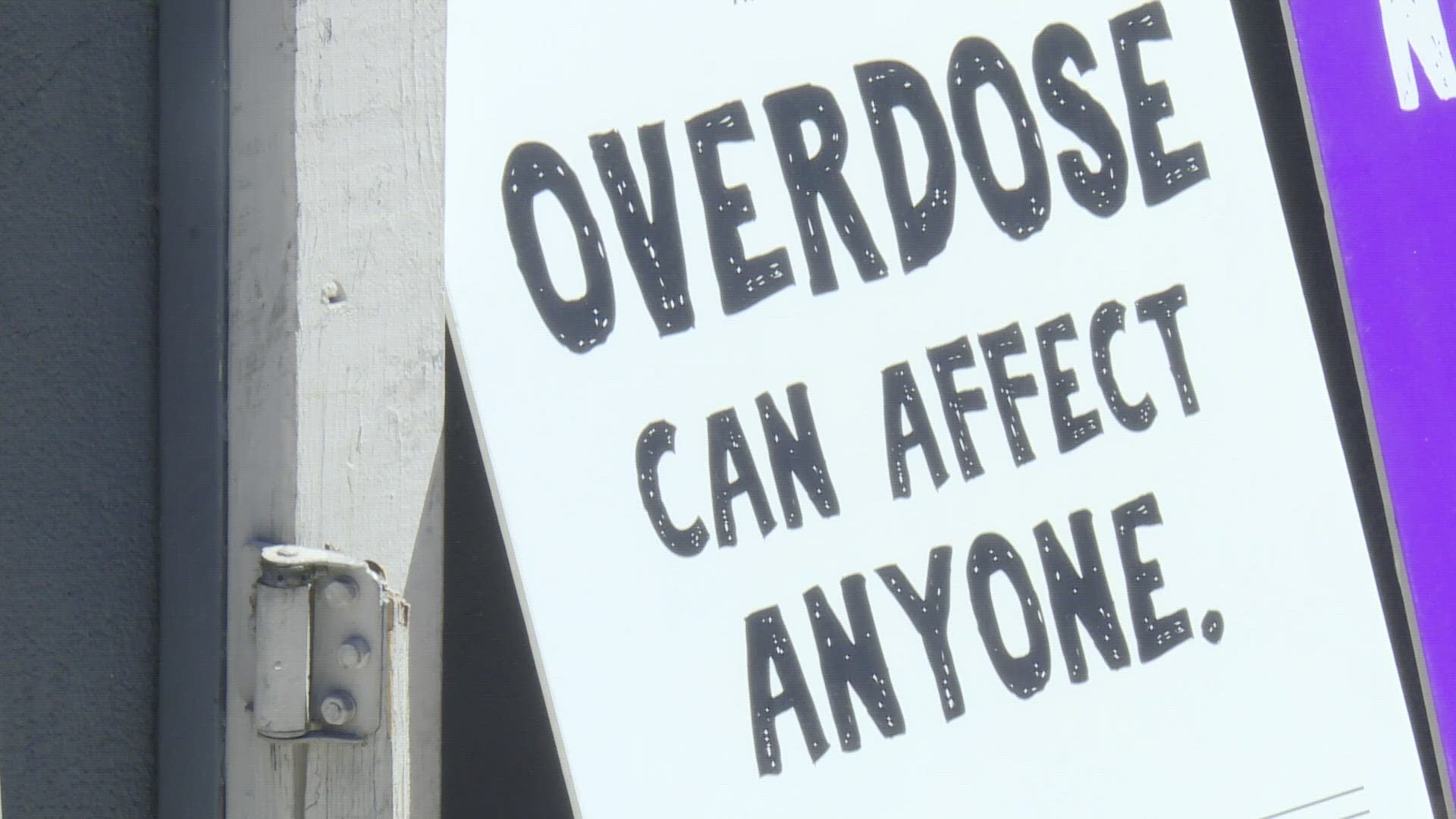DENVER — There have been more than 300 deaths involving drugs in Denver so far this year. More than 200 of those involved fentanyl.
Many in the community are working hard every day to help bring those numbers down, but it's proving to be a challenging battle for the city.
At the corner of Eighth Avenue and Lincoln Street, volunteers and community members surrounded the Harm Reduction Action Center Thursday.
"It's amazing the people that show up for clean sterile supplies, a cold bottle of water on a day like today," volunteer Richard Woodruff said.
Volunteers fill the sidewalk, offering supplies and Narcan to those who need it, all while keeping the meaning behind Overdose Awareness Day front and center for passersby.
"As a front-line provider, I'm losing people every day, and the grief is overwhelming," Harm Reduction Action Center Executive Director Lisa Raville said. "Public overdose deaths are up in Denver, especially in June and July of this year. So we are really grieving those that we’ve lost, and it doesn’t have to be like this."
"In Denver, we're seeing about every 15 hours someone is dying from an overdose and about 24 hours, someone is dying from a fentanyl overdose," said Sterling McLaren, Assistant Medical Examiner and Chief Medical Officer for the city and county of Denver. “I’m not sure if everyone knows the magnitude of the problem."
McLaren said the overdose deaths they see are usually fentanyl or methamphetamine related. Often, it's both.
"Our overdose deaths have increased about 30% in the first half of the year since last year," McLaren said. “Most of our overdose deaths aren’t due to one substance. Usually they’re poly-substance, or more than one drug. We’ve had 101 deaths this first half of the year, some combination of fentanyl and methamphetamine, and that is over a third of our overdose deaths."
Raville said newer state laws passed to combat the fentanyl and drug epidemic aren't cutting down on overdose deaths. Instead, she said, lawmakers have made it more dangerous for users.
"Nobody wants to call 911," Raville said. "We have fentanyl drug-induced homicide laws now in Colorado, meaning every fentanyl overdose death is a murder investigation. You don't get the cartel that way. You don't get mid-level sellers. You get low-level sellers like friends and family members. That's a mandatory minimum of eight years."
Denver District Attorney Beth McCann said those laws do make it challenging for users, but she doesn't want that to stop people from calling 911 during an overdose.
"I will not prosecute people who call when someone is overdosing and possibly dying, because I come down on the side of saving the life versus prosecuting the person – unless we know this person is a big-time dealer," McCann said. "But like a friend, someone who just bought some pills from someone without knowing what was in them, we’re not going to prosecute those kinds of cases."
When it comes to fentanyl possession, McCann said criminal charges have been steadily increasing over the past few years.
"It's depressing but yes. We have seen a dramatic increase in fentanyl cases," McCann said.
McCann said her office has filed more than 500 fentanyl-related drug charges just this year. But, she admits, that hard stance on charging isn't making an impact on the problem yet.
"I would like to say yes, but it is a little bit discouraging to see our case filings continue to increase despite more aggressive prosecution and more aggressive policework as well," McCann said.
As overdose deaths continue to rise, combatting the drug epidemic is proving a challenging fight without a clear path ahead. Still, many hope to see compassion kept front and center in the days to come.
"There's things we can do as a society instead of just trying to be morally policing people. We need to meet them where they are," Woodruff said.
SUGGESTED VIDEOS: Latest from 9NEWS

